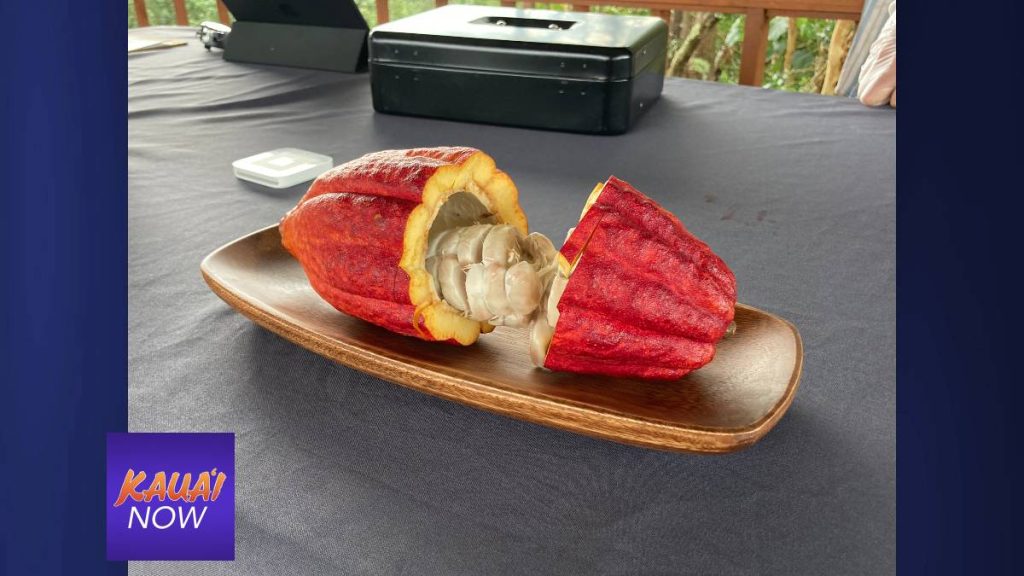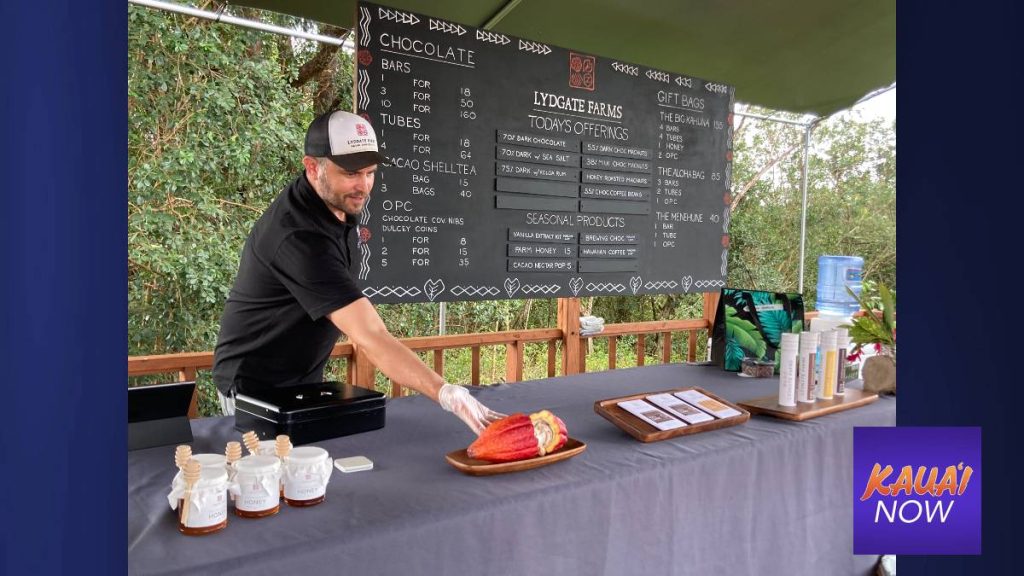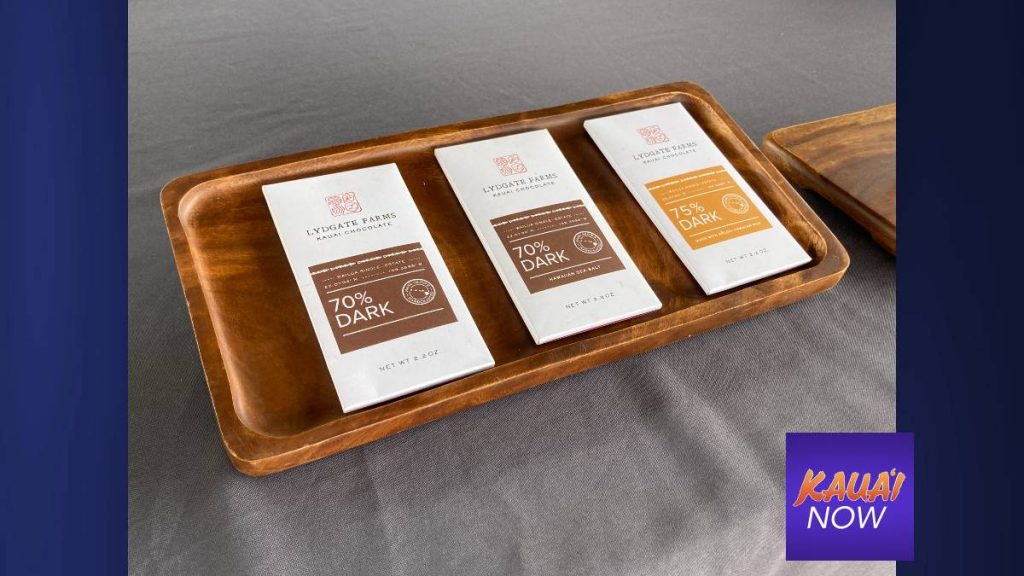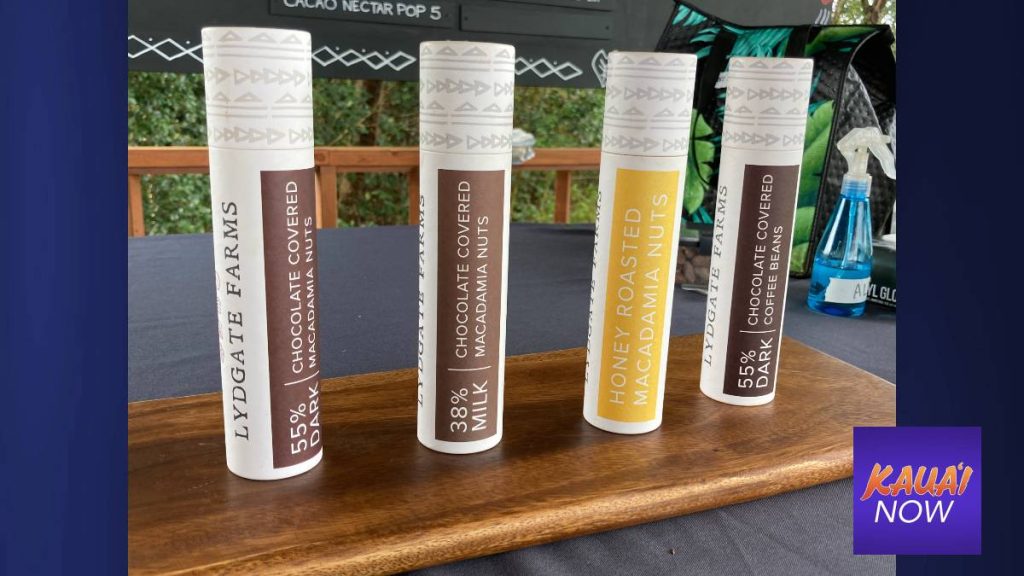Deprecated: stripslashes(): Passing null to parameter #1 ($string) of type string is deprecated in /mnt/efs/html/wp-content/plugins/template-scripts/src/AuthorBios/Frontend.php on line 129
Lydgate Farms grows award-winning chocolate in shadow of Sleeping Giant on Kauaʻi
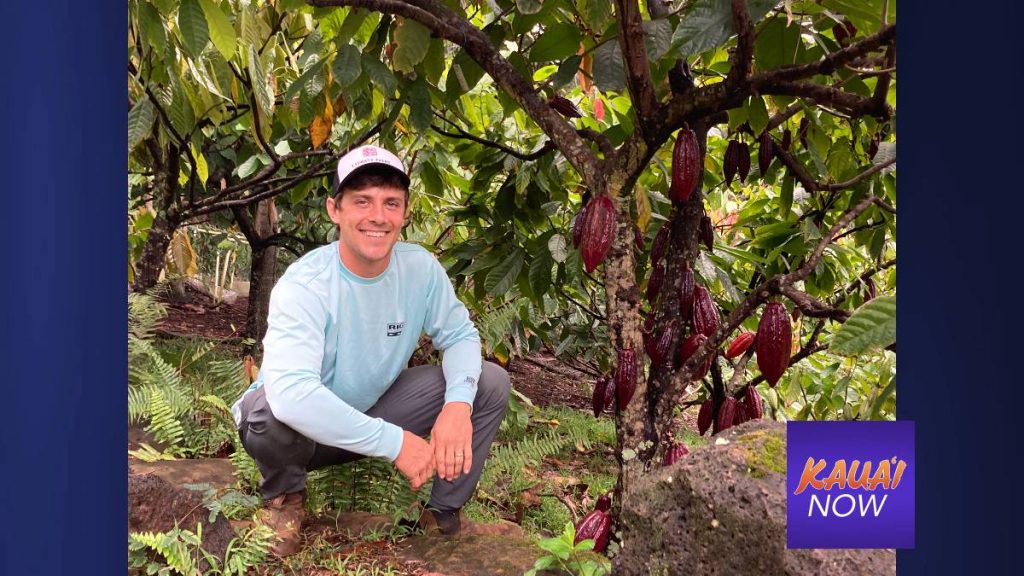
Nestled high in Wailuā in the shadow of Sleeping Giant Mountain, Lydgate Farms was bustling last week despite gray skies and scattered showers raining out beach days and boat tours for visitors to Kaua’i.
Inclement weather is a boon for an award-winning chocolate farm that has a tasting room and store — and offers tours around the 46-acre property.
“For Hawai‘i, agritourism is the ultimate model,” said lead farmer Ryan Rautureau.
Just as its name implies, agritourism – also spelled agrotourism – is any commercial enterprise that brings visitors to its agricultural operation for additional income.
“It’s the cost of land, labor and producing this higher-end thing,” Rautureau explained. “The tourism keeps this whole thing afloat.”
And, with Valentine’s Day just around the corner, it’s a great time to be in the chocolate business.
“If you’ve never had fine craft chocolate before, start with our signature bar. It’s 70 percent dark chocolate – you can’t go wrong,” the farm’s brand director Ryan Gallagher said. “Our chocolate-covered macadamia nuts are the perfect Valentine’s Day gift.”
Rautureau tends the chocolate farm’s 3,000 cacao trees, which produce more than 11,000 pounds of “wet seed” per year on average. The operation is owned by Will Lydgate, whose great-grandfather John Mortimer Lydgate – a polymath who worked as a minister, surveyor, plantation director and botanist – is the namesake of Lydgate Beach Park in Līhu‘e. The park was named in J. M. Lydgate’s honor following his work to to preserve heiau (traditional Hawaiian places of worship) throughout Wailuā.
Will Lydgate, who manages the farm, was off-site last week. He wants to expand by eventually opening a chocolate factory on Kaua‘i.
“As a small farm, we have to decide: ‘We’re going to focus our energy on growing the farm or growing the factory.’ So for the last 20 years, it’s been primarily growing the farm,” Gallagher said. “In two years from now, the hope is to have a chocolate factory here on Kaua‘i. Mr. Lydgate is … specking out equipment, formalizing his concept and vision for the future of chocolate here on Kaua‘i.”
Lydgate Farms planted its first cacao trees in 2002. The Lydgate family, which previously grew bamboo under the name “Steelgrass Farm,” harvested its first chocolate crop in 2008. Most of its gourmet products, which range from chocolate bars to chocolate-covered macadamia nuts, are made on O‘ahu.
Lydgate Farms also produces its own honey from a small apiary and grows its own vanilla beans – a laborious process that requires farmers to hand-pollinate each vanilla flower.
Cacao trees have proven to be an ideal crop. The trees, which are “topped” or pruned to remain manageably short in stature, blend in with the farms’ hilly topography. Lopped-off limbs remain on the ground nearby, where they deteriorate and return nitrogen and other elements to the soil.
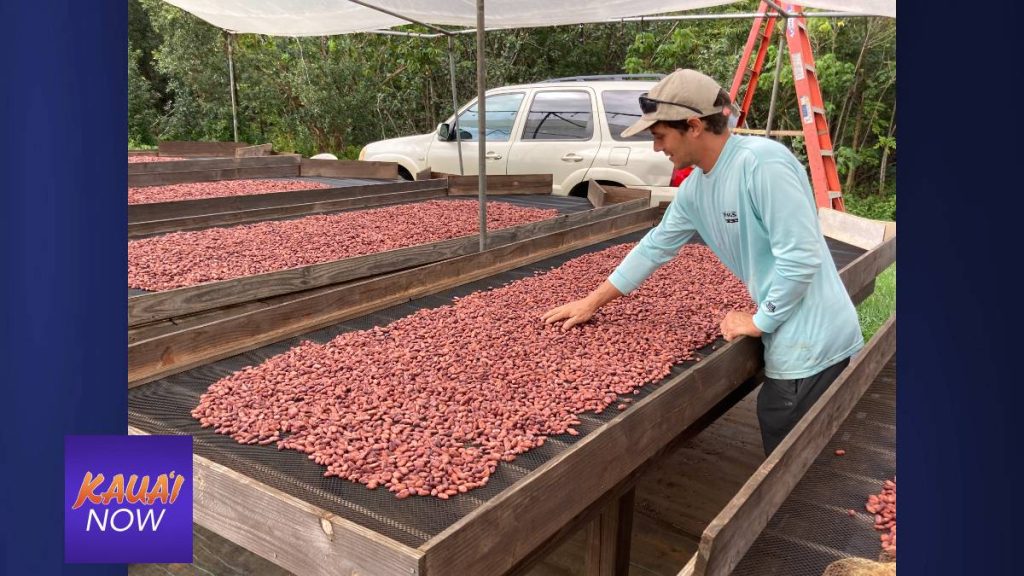
Hawai‘i is the only U.S. state with a climate suitable for growing cacao on a commercial scale.
“It’s a shade grown tree,” Gallagher said. “You’ll notice we have palm trees around it. On other parts of the farm, we have tropical fruit trees.”
The interplanting is believed to improve the chocolate’s flavor.
“Like wine, we believe that the chocolate has a ‘terroir’ effect – that taste that’s influenced by its surroundings,” Gallagher said.
Once they reach maturity, cacao trees produce fruit year-round for up to 60 years. But reahing maturity takes time: three to five years after they’re planted, according to Gallagher.
Lydgate Farms grows several varieties of cacao, including criollo, melonado and forastero. Each variety has its own characteristics, which blend with the others through cross-pollination.
Rautureau, who drives about the farm in a Kawasaki utilty cart dubbed the “Cacao-wasaki,” finds great meaning in agriculture’s connection to cuisine.
“My dad is a chef in Seattle. He’s a very French-style chef … so the connection of ‘you grow it, then you eat it’ was always there,” Rautureau said.
He describes chocolate as a “level two food” – level one foods are staples like onions, potatoes and taro.
“It’s a desert,” he said.
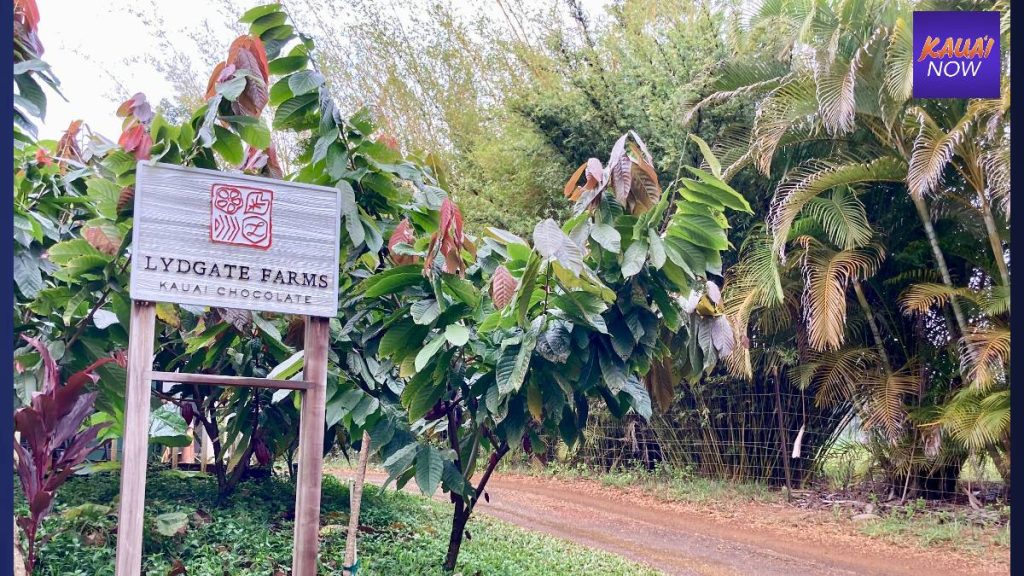
Lydgate Farms harvests its cacao pods once every three weeks. The fruits’ husks become mulch, and the seeds are dried in long trays on tables near the farm’s open-air tasting room and store, which is open weekdays from 9:30 a.m. to 2:30 p.m.
On a recent afternoon, tourists ambled up to the tasting room. Some were repeat customers; others admitted they did not know what to expect, having driven to the farm after spying its location on a map.
Other tourists could be seen on guided three-hour tours of the property, which stands in the shadow of Nounou, also known as Sleeping Giant Mountain. The tours, which cost $125 per adult and $95 for children between ages 7 and 12, have steadily grown in popularity.
“We do two or three tours a day,” Gallagher said. “About a year ago, they were doing about one tour a day.”
It’s easy to see why interest in Lydgate Farms, which has won two international Cocoa of Excellence Awards, has grown. Those used to grocery-store brands will experience an epiphany when tasting the farm’s wares – and that’s its goal.
“We want to change the way you think about chocolate,” Gallagher said.
For more information about Lydgate Farms, go to www.lydgatefarms.com.
Editor’s note: this story has been updated to reflect current ownership of Lydgate Farms.
Sponsored Content
Notice: Function the_widget was called incorrectly. Widgets need to be registered using
register_widget(), before they can be displayed. Please see Debugging in WordPress for more information. (This message was added in version 4.9.0.) in /mnt/efs/html/wp-includes/functions.php on line 6114


